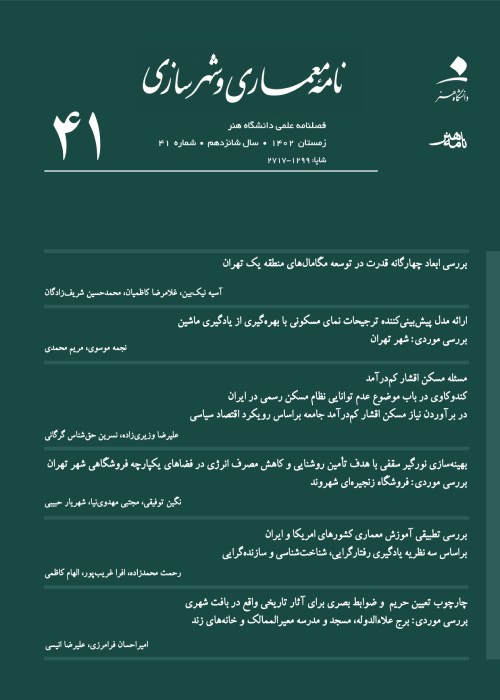Comparison of the Concept of Eco-museum with the Museums
Author(s):
Abstract:
The human being places his past and present in museums, in order to refer to the and think about his future. Along with changes in the course of time, the science of curatorship has employed modern and different methods and approaches than the past for conservation of cultural – natural heritage and based on its requirements has been so much intermingled with architecture, social sciences and environment. As the concept of conservation is not limited to restoration, documentation, and introducing object, the museum -also- is not limited to a place wherein objects are kept to be visited by the public. Traditional museums focused on public administrations and in any case influenced by a nostalgic, traditional approach to the cultural heritage. In the 1970s and particularly in 1970 and after the energy crisis a powerful movement of rediscovery of local culture emerged and the states comprehension of heritage concept changed. Following the mentioned global procedure and movement, formulation of different charters focusing in consideration of rural habitats are on the agenda, as establishment of rural museums, museums of farming life and ecomuseums. Now, we observe open space museums, natural parks and eco- museums, which have a major role in reinforcement, revival, and exhibit the mankind's creativity in their environment, in different designs and sizes that are common in different countries. Generally speaking, eco museums have deep roots in the development of museology. They are in essence, museums which are more than institutes of cultural heritage preservation. Eco-museums policies and practices, which embody cultural as well as local development initiatives, are outstanding examples of this new movement. Through analysis of the trend and various approaches in this regard, this paper tries to focus on the factors and differentiations between eco-museums and traditional museums. Moreover, it introduces existing challenges from different viewpoints, including formation and different functional patterns. The results show that if this type of museums is targeted by major touristic activities in long run, they will not only doom to fail but also they will consume the very heritage they erected for. When there is a conflict between tourism and preservation of culture the later must be given priority. The problem is that many eco-museums are not really instituted for exchanging information; many of them were created solely to obtain the financing available under regional laws. Public participation of locals is essential to the eco-museums. This principle should cover a very wide scope something more than mere exhibition of their tradition and appearance before the visitors. From the other side, in selection of place and type of activities of an eco-museum, not only the socio – cultural compatibility is of importance but also it is necessary to consider environmental structure of the region wherein the museum is established. There is no definite style for eco-museums. They will all be different according to the specific culture and situation of the society they present. Social development is a prerequisite for establishing eco-museums in living societies. The benefit of the inhabitants must be enhanced in ways that do not compromise traditional, cultural and natural values.
Keywords:
Language:
Persian
Published:
Journal of Architecture and Urban Planning, Volume:2 Issue: 4, 2010
Page:
61
magiran.com/p1161698
دانلود و مطالعه متن این مقاله با یکی از روشهای زیر امکان پذیر است:
اشتراک شخصی
با عضویت و پرداخت آنلاین حق اشتراک یکساله به مبلغ 1,390,000ريال میتوانید 70 عنوان مطلب دانلود کنید!
اشتراک سازمانی
به کتابخانه دانشگاه یا محل کار خود پیشنهاد کنید تا اشتراک سازمانی این پایگاه را برای دسترسی نامحدود همه کاربران به متن مطالب تهیه نمایند!
توجه!
- حق عضویت دریافتی صرف حمایت از نشریات عضو و نگهداری، تکمیل و توسعه مگیران میشود.
- پرداخت حق اشتراک و دانلود مقالات اجازه بازنشر آن در سایر رسانههای چاپی و دیجیتال را به کاربر نمیدهد.
In order to view content subscription is required
Personal subscription
Subscribe magiran.com for 70 € euros via PayPal and download 70 articles during a year.
Organization subscription
Please contact us to subscribe your university or library for unlimited access!


